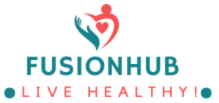Employee health insurance is a valuable benefit that employers offer. It allows employees to access medical coverage for a much lower price than individual plans. Employer-sponsored health insurance is used by many workers to cover all their medical needs, including routine doctor’s visits and major medical procedures. A plan provided by an employer can help employees save thousands in medical costs.
Understanding the various aspects of coverage at work, such as premiums, deductibles, and employer contribution, is important to make the most of the benefit. Knowing how health insurance for employers works will help you make an informed decision about your healthcare, whether you’re starting a new position, switching pplansns, or just trying to better understand your options. This guide will explain everything you need to know about employer-sponsored insurance, such as costs, benefits, and eligibility requirements.
Employer Health Insurance: How it Works
Employer health insurance refers to a group health plan that is offered by employers as part of the benefits package they offer their employees. The employer and employee usually share the monthly premium cost, which makes the plan more affordable compared to purchasing private insurance. Employers select a variety of health insurance plans that employees can select based on budget and needs. Health Maintenance Organizations, Preferred Provider Organizations, and High-Deductible Health Plans (HDHP) are some of the plans that may be available. This coverage includes prescription drugs, emergency care, hospitalization, and doctor visits. Understanding the structure of health insurance offered by employers can help employees maximize their benefits.
Employer Contributions and Cost Sharing:
The financial contribution of the employer is one of the most important advantages of an employer-sponsored health plan. Employers typically pay a large portion of monthly premiums. This reduces the employee’s out-of-pocketet costs. Employer contributions vary by industry, company, and plan type. Employers may cover up to 80% or more of premium costs. Employees pay the remainder through payroll deductions. Employees may also be responsible for copayments and deductibles when receiving medical care. This can be expensive, so you should compare plans and know how much money you’ll need to spend on medical services.
Employer Health Insurance Plans:
Most employers offer employees a variety of health insurance plans that provide different coverage levels and options for cost. HMO, PPO, and HDHP are the most common. HMO plans are a good option for people who want to pay less and have predictable costs. They require that employees use a network of doctors. PPO plans allow employees to visit a doctor without referrals.
However, out-of-network services can be more expensive. HDHPs offer lower monthly premiums with higher deductibles. They are ideal for employees who do not require frequent medical attention. These plans are compatible with HSAs and allow employees to save money before taxes for medical expenses. The type of health insurance that is best for your company depends on the individual’s healthcare needs, budget, and provider preferences.
Eligibility for Employer Health Insurance:
As eligibility requirements differ by company, not all employees are automatically eligible for health insurance. Part-time workers may or may not be denied coverage based on the company’s policies. Businesses with 50 full-time workers or more are required by the Affordable Care Act (ACA) to offer health insurance. Otherwise, they will be penalized. Some employers offer coverage for dependents such as spouses and kids so that families can benefit from group insurance plans. Some employers require new employees to go through a probationary phase before they are eligible for coverage. Others may require that you enroll during your company’s open enrollment period. Understanding the eligibility requirements of your employer can help you plan and ensure that you continue to have health coverage.
Periods of Open Enrollment:
Employees can enroll in employer-sponsored health plans during specific periods. Open enrollment is an annual period in which employees can enroll, change their coverage, or switch to another plan offered by their employer. Employees who miss the open enrollment may be forced to wait until next year’s enrollment period unless they are eligible for a special period. Life events that trigger special enrollment periods include marriage, the birth of a baby, job loss, or a change in dependent status. By understanding these enrollment periods, employees can ensure that they don’t miss any important deadlines or lose their healthcare coverage.
Benefits of Employer Health Insurance:
Many employers offer health insurance that includes benefits in addition to basic coverage. Dental and vision coverage is available in many plans, including routine eye exams, cleaning, and contact lenses. Some employers offer wellness programs such as gym memberships, programs to quit smoking, support for weight loss, and mental health resources. Employee Assistance Programs are also a valuable benefit. They offer confidential counseling for issues such as work-related stress and personal concerns. Employers may offer Flexible Spending Accounts or Health Savings Accounts to employeto to save money on medical costs. These benefits add value to the workplace and promote employee well-being.
The Pros and Cons Of Employer Health Insurance:
Employer-sponsored health insurance offers several benefits, including lower rates, employer contributions, and group coverage rates. Employees benefit from lower rates for individual plans because employers negotiate with insurers. Employer-sponsored health insurance plans usually provide comprehensive coverage that includes preventive care and prescription drugs, as well as emergency services. There are some disadvantages. The employees’ choices are limited since they can only choose from the plans that their employer offers. Employees who leave their jobs may lose their insurance coverage unless they purchase COBR, which is expensive. Some employer plans may have high deductibles or out-of-pocket costs that are not affordable to all employees. By weighing the pros and cons, employees can make informed decisions about their healthcare coverage.
What Happens to Your Health Insurance if You Leave Your Job?
Employees who quit their jobs due to resignation, termination, or retirement are concerned about losing employer-sponsored health insurance. Most often, the employer’s health insurance coverage ends at the end or the day after the employee leaves the company. Employees have several options for maintaining coverage. COBRA allows employees to keep their employer’s insurance for a short time, typically up to 118 months, but they must pay full premiums, which can be expensive. You can also enroll in a health insurance plan via the ACA Marketplace, where you may qualify for subsidies based on your income. Depending on your circumstances, you may be eligible for Medicaid or another government program. When changing jobs, it is important to plan and ensure that you have access to health care services.
Conclusion:
Employer-sponsored health insurance provides affordable healthcare to employees. Employer-sponsored coverage can be more affordable than buying an individual plan, as employers pay a portion. Employees can make better healthcare decisions if they understand how employer-sponsored plans work, such as plan types, enrollment dates, and cost sharing. Employer health insurance is still the best way to get medical coverage, despite its limitations. These include restricted options for plans and coverage loss when you leave a job. Employees can protect their financial and health well-being by taking advantage of benefits provided through workplace coverage.
FAQs:
1. What is the main advantage of employer health insurance?
The main advantage of employer health insurance is cost savings. Employers contribute a portion of the premium, making coverage more affordable than individual health plans.
2. If I leave my job, can I still keep my health insurance?
You can keep your employer-sponsored plan if you pay the full premium. You can also look into marketplace plans or alternative coverage options.
3. What happens if I don’t enroll during the open enrollment period of my employer?
You may need to wait for the next open enrollment period if you missed the current one. This is unless you are eligible for a special period of enrollment due to an event in your life, such as a marriage or a childbirth.
4. Does employer health insurance cover dependents?
Most employer-sponsored plans cover dependents, including spouses and kids, but costs and eligibility requirements differ by company.
5. What is the difference between HMO plans and PPO plans for employer health insurance?
HMO plans force employees to choose a specific network of doctors, and they must be referred for specialist care. PPO plans give them more freedom in selecting healthcare providers, including those outside the network.




